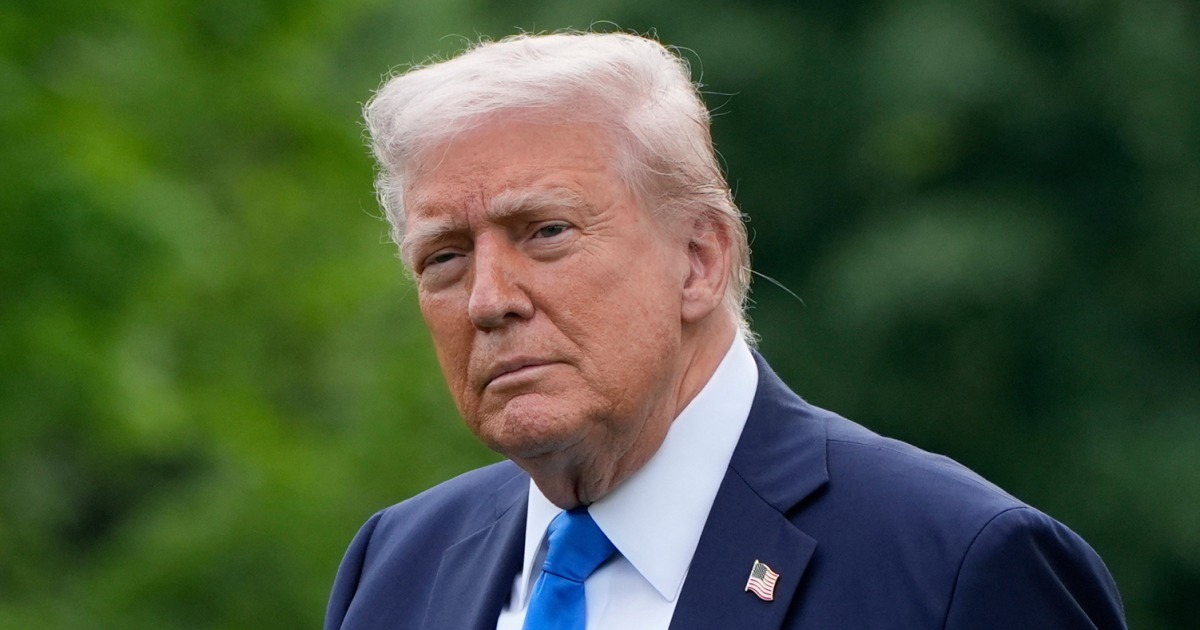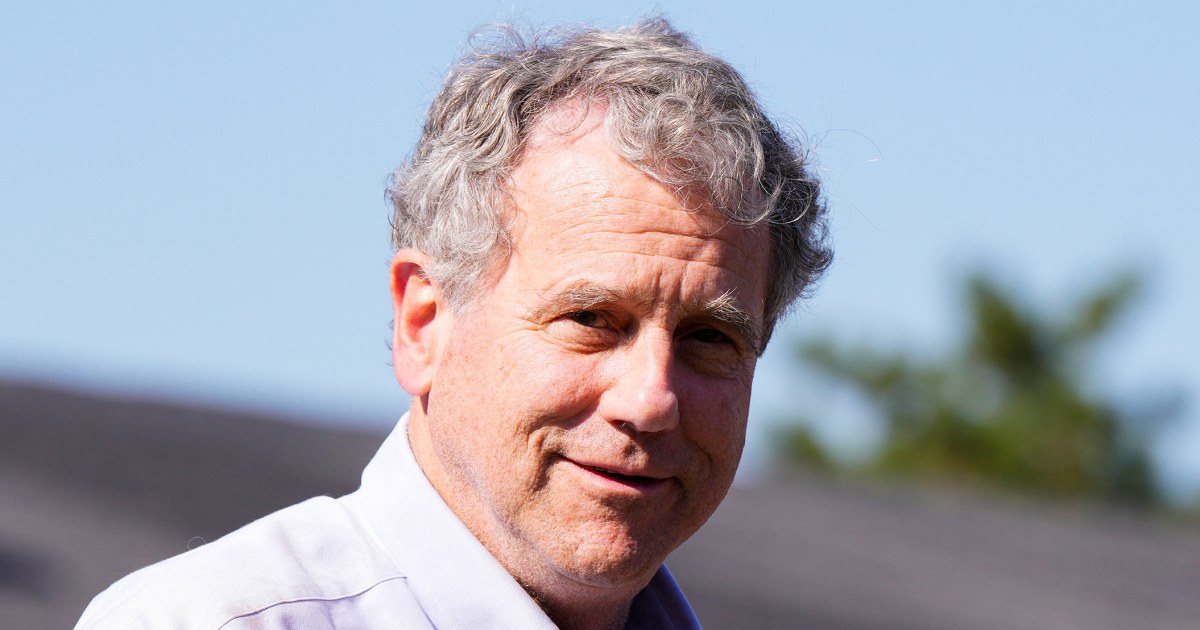
An avid consumer of dietary supplements, Health and Human Services Secretary Robert F. Kennedy Jr. has surrounded himself in part with senior staff members, advisers and health influencers who have promoted everything from weight loss pills to capsules of desiccated organ meat.
But that hasn’t led to gains in Washington for the multibillion-dollar industry — yet.
Kennedy’s “Make America Healthy Again” takeover has, instead, been focused in part on questioning vaccine use, calling out artificial food dyes and cutting personnel and research grants at federal agencies.
While Trump officials have offered a warm welcome, neither the administration nor the GOP-controlled Congress has made policy changes long sought by the industry — to make it easier for consumers to buy supplements, to go after unscrupulous actors and to allow manufacturers more leeway in making claims about their health benefits. And other administration policies targeting food additives and tariffs on imports have imposed new challenges on supplement makers.
“They seem very willing and eager to have those conversations, and they listen to the issues that we raise. But we’re not seeing action that brings these things to the forefront,” said Steve Mister, president and CEO of the Council for Responsible Nutrition, a supplement trade group. “We’re not seeing any positive, dramatic changes that have been particularly helpful to the industry.”
Dietary supplements cover a vast array of products, including vitamins, herbal extracts and products derived from foods, including produce, fish and meat. They’ve grown increasingly popular among consumers, making up a $69 billion market in the United States last year, according to one industry estimate.
Some of the most prominent influencers supporting Kennedy and President Donald Trump are among the many celebrities who hawk dietary supplements. Podcaster Joe Rogan has promoted capsules meant to promote cognition — “it helps your ability to form sentences” — to a mushroom-derived supplement meant to improve athletic performance.
Dr. Mehmet Oz, administrator of the Centers for Medicare and Medicaid Services, came under fire during his confirmation hearing for promoting supplements that he called a “magic weight loss cure” and “the No. 1 miracle in a bottle.”
Kennedy also did raw milk shots at the White House with Dr. Paul Saladino, a wellness influencer who sells capsules of freeze-dried organ meats.
At the same time, supplement companies — along with the influencers and celebrities who promote the products — have come under criticism for making inflated, sometimes misleading claims that overstate the health benefits of their products.
“I’m a big fan of supplements,” said Dr. Pieter Cohen, an associate professor at Harvard Medical School. “But most of supplement use is not supported by strong evidence — it’s supported by advertising.”
Though companies are subject to federal oversight and enforcement action, dietary supplements aren’t approved by the Food and Drug Administration for safety and effectiveness, and their labels aren’t approved before they’re sold to the public. Some can be dangerous, and a growing number of states are taking up bills that would ban the sale of weight loss and muscle-building supplements to minors.
Supplement makers say they go out of their way to ensure their products are safe, arguing it’s a myth that their industry is unregulated — and they argue some of the federal rules go too far. Laws prohibit labeling or marketing dietary supplements as being able to cure, treat or prevent any disease; those products are considered drugs. Supplement companies can make health claims about their products only through a strict federal approval process.
The Department of Health and Human Services, which oversees the FDA, said in a statement that people should “consult a healthcare provider when choosing a dietary supplement.”
On a podcast in 2023, after he had launched his presidential bid, Kennedy mentioned the many vitamins he takes. “I can’t even list them to you here, ’cause I couldn’t even remember them all,” he said.
Élan Sudberg saw an opportunity. Sudberg, the CEO of a botanical plant testing company and a board member of the American Herbal Products Association, which represents supplement makers, was heartened by Kennedy’s emphasis on alternative medicine and criticism of Big Pharma. In November 2023, he met Kennedy at a private event in Ojai, California, and told him that the supplement industry needed his support.
“We need a champion. And I understand you’re a big fan,” Sudberg recalled telling him.
Kennedy put both of his hands on Sudberg’s shoulders. “My people are going to be talking to your people,” he told him, Sudberg said.
Kennedy has already faced criticism from some of his other early MAHA supporters for failing to deliver some of the sweeping changes they were hoping to see, on everything from expanding access to raw milk to eliminating harmful pesticides from the food supply. Similarly, some in the supplement industry are frustrated that — despite the positive rhetoric — the administration hasn’t been more proactive.
“Where there are gaps in nutrition, and how do you fill those gaps, the agency does not seem to be focused on that,” said Mister, head of the Council for Responsible Nutrition. “It really seems to be much more reductionist in terms of we have to get rid of colorings, we have to get rid of dyes, we have to get rid of ultra-processed food.”
Shortly after he became secretary, Kennedy targeted an FDA process that lets companies introduce new chemicals or ingredients into food products without FDA approval, if they are “generally recognized to be safe.” Vowing to eliminate the process, Kennedy said food companies had “exploited a loophole” that put consumer food safety at risk.
Major supplements groups quickly registered their concerns in meetings with the FDA, which has yet to announce next steps. “Our members really depend on the ability to be innovative,” said Duffy MacKay, who leads policy initiatives on dietary supplements for the Consumer Healthcare Products Association, an industry trade group.
Supplement makers were thrown for a loop when the Trump administration imposed tariffs on imported goods, as many key ingredients for their products are sourced overseas. While industry groups successfully lobbied the White House for tariff exemptions for major vitamins, minerals and fish oils, other popular ingredients have still been affected.
The tariffs scrambled business plans for Herbalist & Alchemist, which sources herbs from China, India and Europe, some of which can’t be grown easily in the United States. The company this year bought two years’ worth of Rhodiola — an herb that grows in Arctic regions, used to combat fatigue and stress — because of looming Canadian tariffs.
While CEO Beth Lambert has been encouraged by the MAHA campaign Kennedy has led, “the biggest thing that has happened” so far has been the new tariffs, she said. “Having that uncertainty is just disruptive for an industry. It’s rough for business. It’s rough for the growers.”
Still, makers see an opportunity and believe it’s worth making the extra push while Kennedy and his team are in office. In late July, Calley Means — a Kennedy aide who founded a startup allowing consumers to get tax breaks on supplements and other health products — was the keynote speaker at a gathering for supplement industry executives. “It was an olive branch to working with the industry,” said Graham Rigby, CEO and president of the American Herbal Products Association.
Among the industry’s biggest priorities is to allow supplements to be covered by federal programs like Medicare, the Supplemental Nutrition Assistance Program and tax-advantaged health savings accounts. “Vitamin C is pretty much now an undisputed, necessary nutrient for healthy lifestyles — pirates figured that out with scurvy hundreds of years ago,” Sudberg said. “Still, you can’t use your health savings account to buy vitamin C.”
Industry groups tried to make their case this year when Congress debated Trump’s “big, beautiful bill,” but lawmakers resisted the change, in part because of the cost. Five trade groups for the supplement industry recently called for the Trump administration to make the change through an updated tax code.
Separately, advocates are pushing the FDA to make it easier for supplement companies to make claims about the health benefits of their products.
The FDA has an approval process for claims that the food component of a supplement may “reduce the risk of a disease” or a health condition. But the approval process is strict and time-consuming, requiring not only evidence but also “significant scientific agreement” about such health claims. To date, the FDA has approved only about a dozen claims.
The Alliance for Natural Health, an advocacy group, believes the FDA has unfairly muzzled companies. It is asking the FDA to allow it to make vastly more health claims — more than 150 total — through a formal petition to the agency, scheduled to be submitted this week.
“There is a huge amount of information at the moment that’s not even finding its way to the public,” said Robert Verkerk, the group’s scientific director, citing research that shows links between B vitamins and the reduction of cognitive decline and between folate and the risk of depression, among other examples.
Some outside experts and consumer advocates warn that supplement companies could end up manipulating consumers if the FDA heeds such calls, allowing manufacturers to make health claims that have only tenuous links to the products they are selling.
Industry groups insist that they are committed to weeding out dishonest companies that make false claims or sell dangerous products. Some have been openly critical of the broad staff cuts the Trump administration has made across federal health agencies — warning of the impact on FDA enforcement and federal research on supplements, among other areas — and applauded the FDA’s recent call to categorize 7-OH, a substance found in tablets and drink mixes sold in gas stations and convenience stores that has opioid-like properties, as an illicit substance.
“If we’re tolerating bad actors around us, then we’re contributing to the problem,” said Jim Emme, CEO of NOW Health Group, a supplement manufacturer and retailer that has called for the FDA to crack down on products sold on Amazon that have failed potency and quality tests.
Emme, who leads the board of directors of the Natural Products Association, said he has been encouraged by his recent conversations with FDA officials, who have asked whether supplements could be covered by Medicare and what mothers are looking for in supplements for children.
“We’ve got a window of an opportunity for an industry that we need to take advantage of,” he said. “It’s all election cycles, right? Who knows how long these administrators are going to be in there?”








